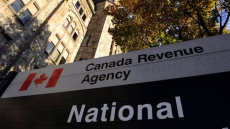Welcome to Canada! You probably already know it’s the second-largest country in the world, and you’re likely familiar with some of our cultural icons, like the Royal Canadian Mounted Police, maple syrup, and ice hockey. But you might not know that Canada is a country as diverse and unique as those who call it home.
The quality of life in Canada is reflected in its social programs and services, like the roads, public transit, public utilities, schools, employment insurance, pension plan, and health care. Canadians and residents alike have the right to make use of these programs – and they support them through the taxes they pay on their income. As a Canadian resident, you may be eligible to receive certain benefits, but you also have a responsibility to report your income and pay your share of taxes. It’s important that you understand what your rights, entitlements, and obligations are under Canada’s tax system.
The Canadian tax system is based on self-assessment and residency. Self-assessment means that you voluntarily fill out an income tax and benefit return to report your annual income to the Canada Revenue Agency (CRA), Canada’s administrator of taxes and benefits. But filing a tax return is about more than just telling the government how much money you made – it also allows you to claim all deductions or credits that apply to your specific situation – and to qualify for benefit payments.
Your residency status for tax purposes may be different from your citizenship or immigration status. As a resident of Canada for income tax purposes, you must file a tax return if you owe tax, believe you are owed a refund on taxes you’ve already paid, or want to receive the GST/HST credit or family-related benefits.
Even if you haven't earned any income in the past year, you might still be eligible for certain benefits or credits, such as the Canada child tax benefit and the universal child care benefit. These are payments that you receive from the government every month to help with your family finances—but to get these benefit payments or credits, you have to file a tax return.
Generally, your tax return for a given year has to be filed by April 30 of the next year. For example, for any income you’ve earned in 2013, you need to file your return not later than April 30, 2014.
However, if you, or your spouse or common-law partner, are self-employed, you have until June 15 to file your return. As June 15 falls on a weekend, the filing deadline has been extended to the following Monday – June 16, 2014. Even though you don’t have to file your return as a self-employed individual until June 16, if you have a balance owing for 2013, you still have to pay it on or before April 30, 2014. Since tax rates and credits are not the same in every province and territory, it’s also important to use the correct forms for the province or territory you live in. To decide which forms you should use, choose the ones for the province in which you lived in on December 31 of the tax year.
Adjusting to a new set of tax rules and requirements can feel overwhelming. The CRA is here to help! You can type “newcomers” in the search function on the CRA website at www.cra.gc.ca to get more detailed information. You can also check out the “newcomers to Canada and the Canadian tax system” video series online at www.cra.gc.ca/videogallery.
For further information call 1-800-959-8281 to reach a CRA agent who will help answer your tax-related questions.





